
Colorado Springs Offers Endless Adventure
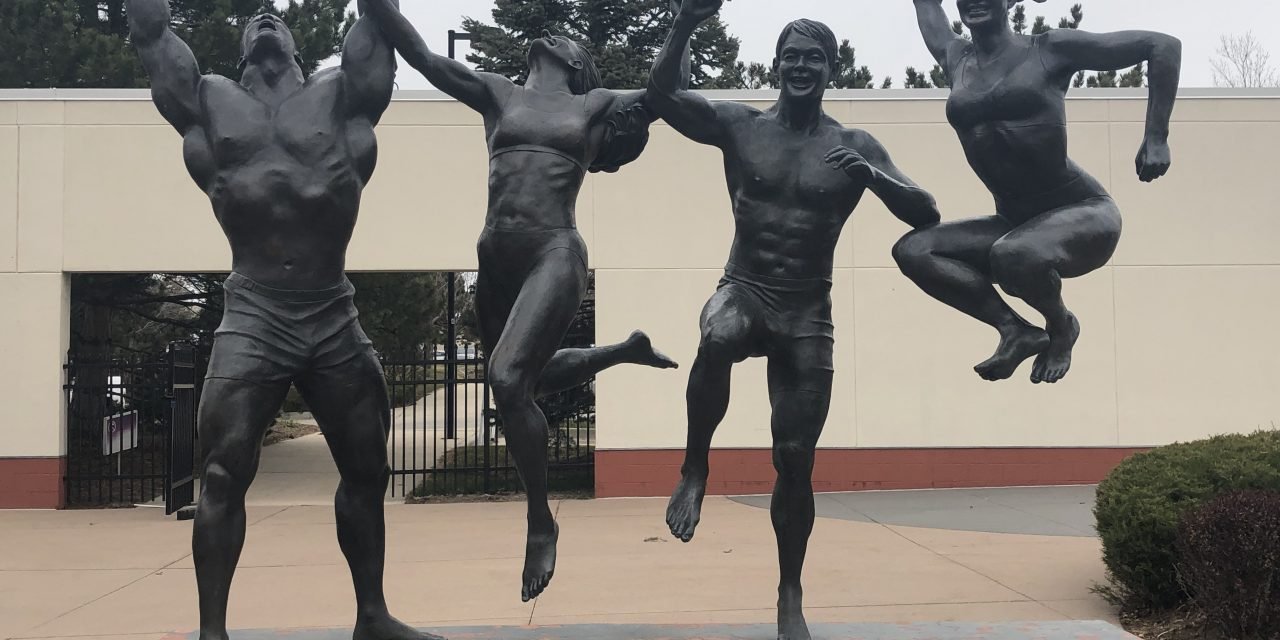
Editor’s Note: This article has been updated since its original publication date. (2024)
I’m a sucker for a room with a view. It doesn’t matter if it’s water, mountains or a cityscape. I’m not picky. But, some views deserve extra special recognition, like the one at The Garden of the Gods Resort and Club in Colorado Springs. All the guest rooms and suites offer breathtaking vistas of snow-capped Pikes Peak and the Garden of the Gods landmark, with its dramatic red rock formations. The panorama is drool-worthy and you may not want to leave your spacious, well-appointed abode – ever!
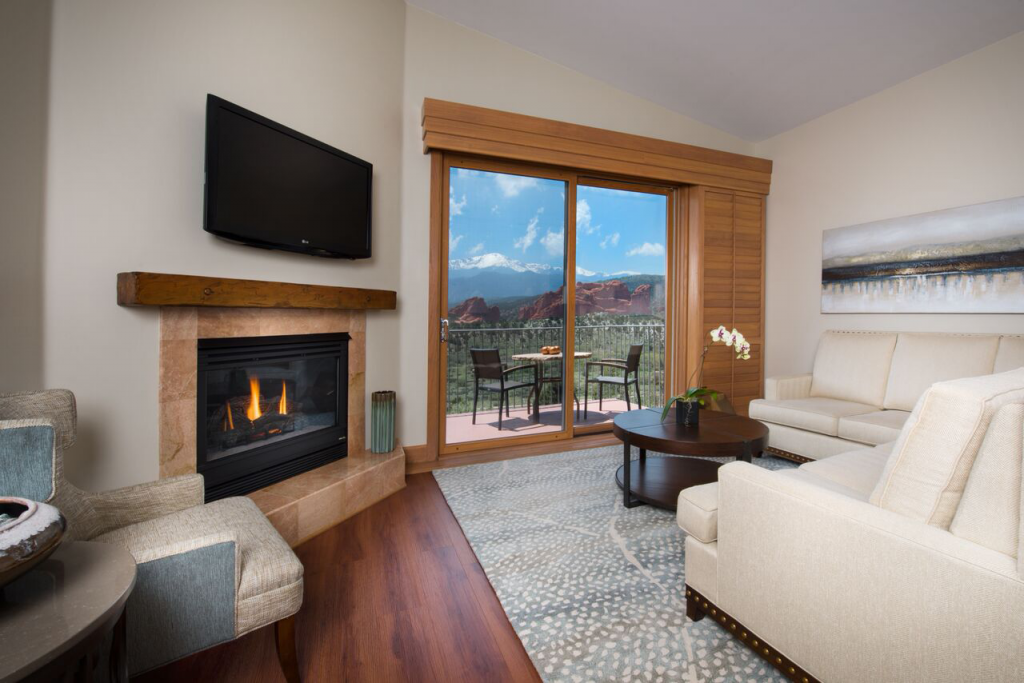
Rest assured, though, it’s not only the rooms that have a view at this property. The entire resort was designed with Mother Nature in mind. Wall-to-wall windows showcase the spectacular scenery, whether you’re dining in one of the restaurants, sipping on a libation in the lounge or breaking a sweat in the gym. Wherever you go, you’ll have a front seat to this magnificent landscape.
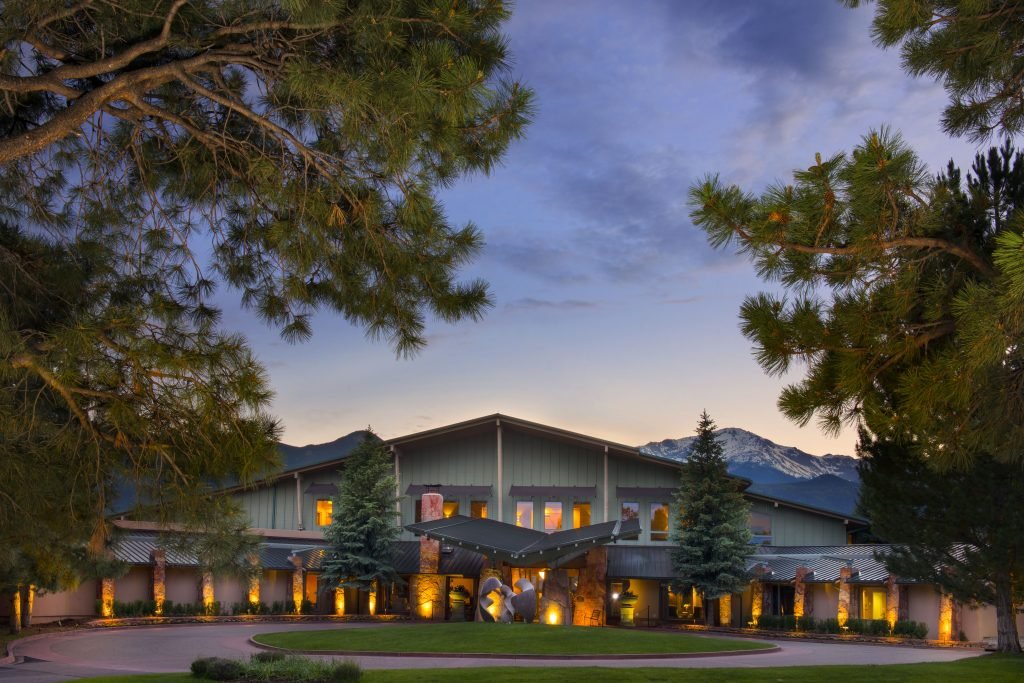
The resort is amenity-rich, with swimming pools, hot tubs, a 27-hole golf course, outdoor and indoor tennis courts, fitness center and full-service spa and salon for the ultimate in pampering. The Strata Integrated Wellness Spa at The Garden of the Gods Resort and Club combines the best of Western and Eastern medical science, providing programs in nutrition, fitness, meditation, mindfulness and coaching, along with a menu of rejuvenating treatments ranging from the traditional to unique. .
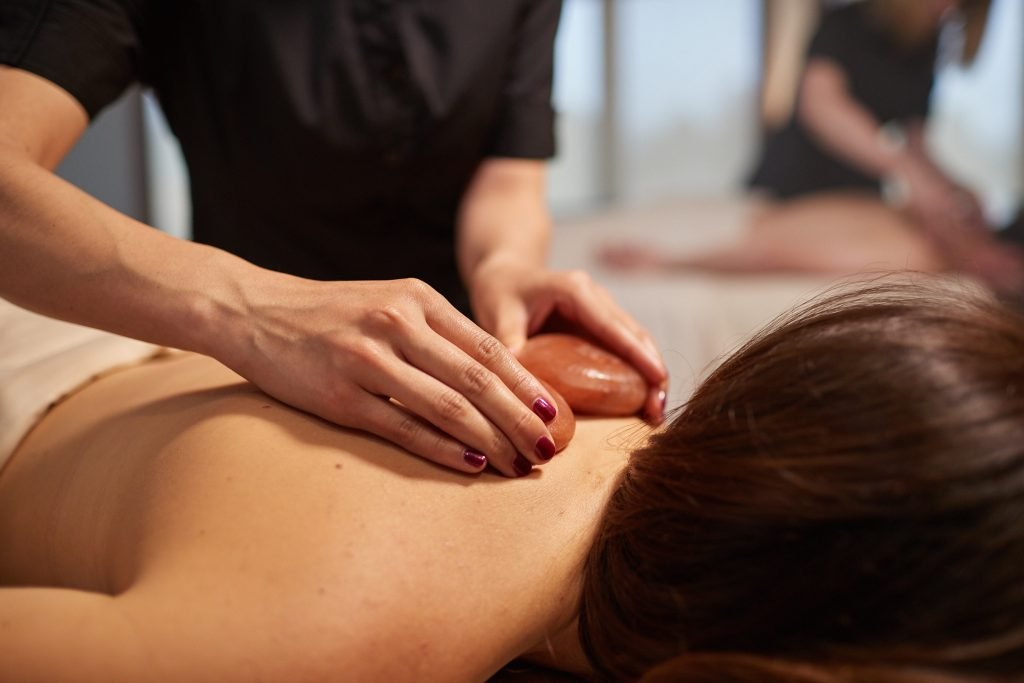
I had the pleasure of experiencing a Royal Thai Poultice Massage, one of the spa’s more unusual offerings. This heavenly treatment incorporated massage with an organic herbal poultice, Thai-style stretching and aromatherapy. The poultice helps promote wellness in various ways, by instilling calm, relieving muscular soreness and increasing revitalization. Specific herbs are wrapped in muslin or cotton and then steam-heated to allow the natural essential oils and aromas to be released. The therapist then rolls and presses the poultice on your body, creating a combination of deliciously soothing sensations aimed at loosening energy blockages and stimulating blood circulation.
Before and/or after your spa treatment, make sure to spend some time in the Himalayan salt inhalation chamber. The salt is purported to reduce stress and fatigue, decrease inflammation and improve respiration. With its salt block walls glowing from within and eighty degree heated air, it’s a therapeutic sauna. I found the experience to be relaxing and conducive to meditation.
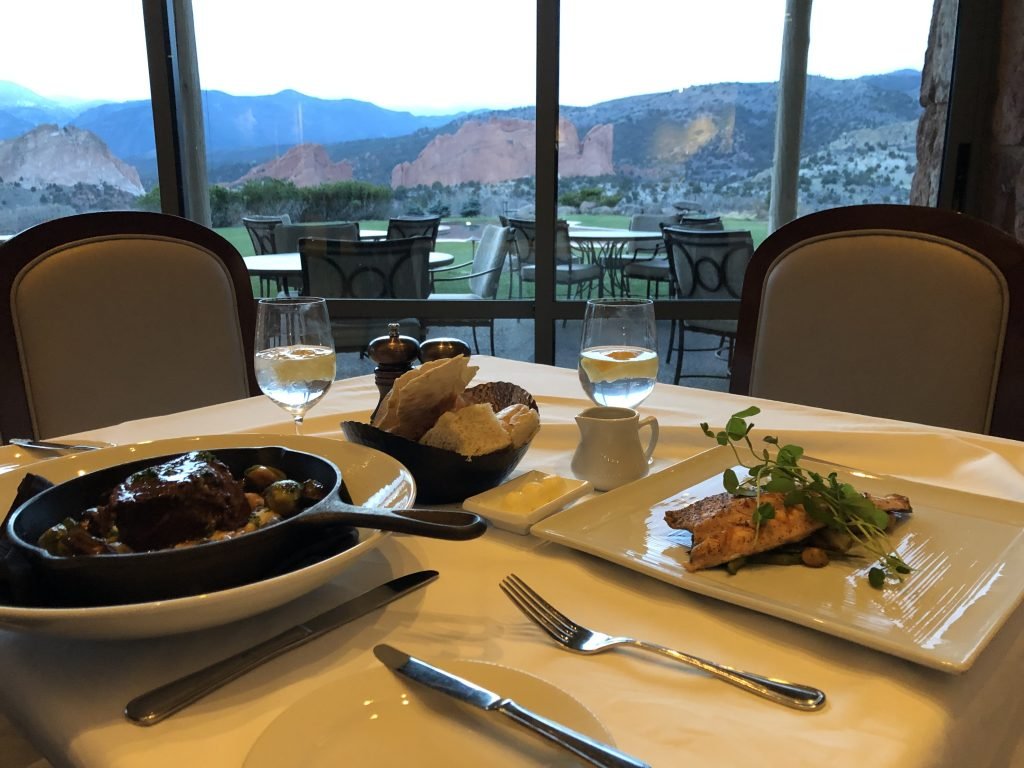
In the evening, treat yourself to a very special dinner in the resort’s Grand View Dining Room. Culinary artistry combines with attentive service in a refined environment to create a meal you won’t forget. Start off with the Butternut Squash Soup or Maine Lobster Bisque and a Kale Caesar Salad, or splurge on Pan Seared Foie Gras. Carnivores will salivate over the “Off the Butcher Block” entrees like Angus Filet Mignon and Prime NY Strip. And if you’re a seafood aficionado, like me, you’ll delight in such dishes as Alamosa Striped Bass Meuniere and Skuna Bay Salmon. I was also tempted to try the vegetarian entrée, Curried Roasted Cauliflower Steak with Organic Coriander Yogurt, which sounded delicious. If you still have room for dessert, indulge in the Peach Shortcake or Coconut Passion Fruit Entremet. Then waddle back to your room.

When you’re ready to explore your surroundings, head to nearby Garden of the Gods. Considered a holy place by the Native Americans, this enchanting paradise is a registered National Natural Landmark. Stop in at the visitor center and museum to learn more about the history and geology of the place via a series of interactive exhibits and an informative movie.
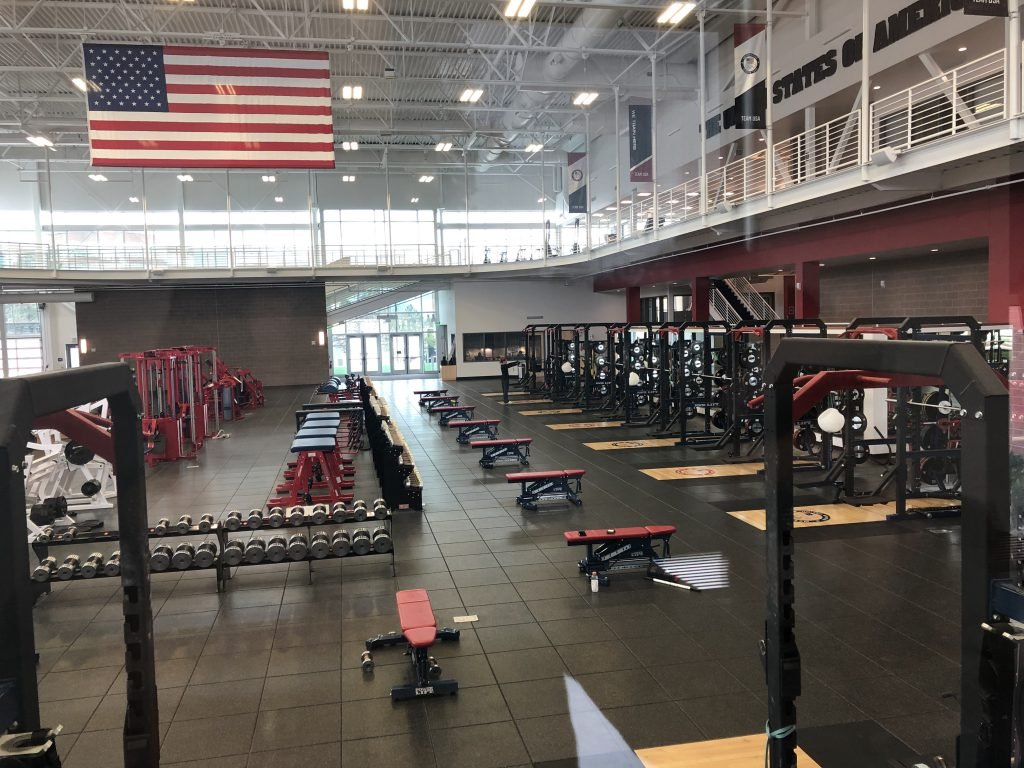
The land that the Garden of the Gods sits on was once owned by Charles Elliott Perkins, head of the Burlington Railroad, who originally bought it for a summer home in 1879. He later added to the property, but never built on it, opting to leave the place in its natural state for the enjoyment of the public. Perkins passed away in 1907 before taking measures to establish the land as a public park, though it had been open to the public for years. Two years later, his children, well aware of their father’s feeling for the Garden of the Gods, gave the four hundred eighty acres to the City of Colorado Springs. As stipulated in their gift, the park remains free to the public.
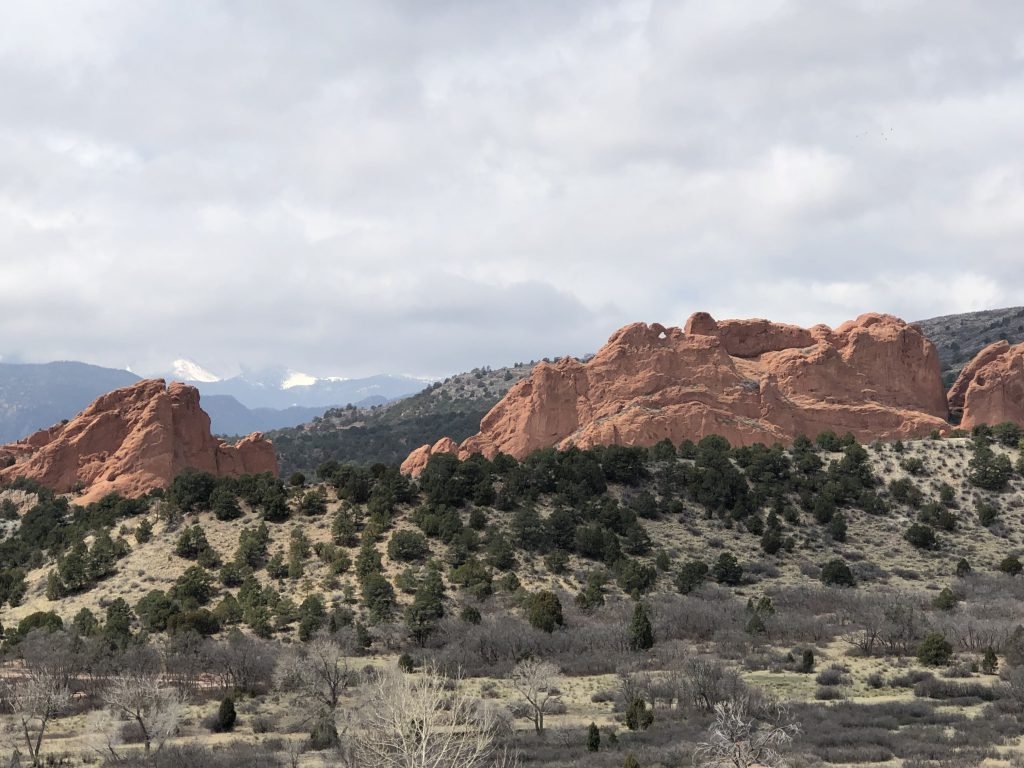
As to the park’s name, story has it that two surveyors came upon the towering sandstone formations back in 1859. Upon seeing the place, one declared it would make a great spot for a beer garden. The other said it was the perfect spot for gods to assemble–and deemed it the Garden of the Gods. An apt descriptor, the name stuck through the ages.
Though you can drive through the park and marvel at the landscape, the best way to explore it is to get out of your car and hike. There are fifteen miles of trails, easy to moderate, that will give you the feeling of being among the rocks, while also providing opportunities for expansive views. Some of the formations have monikers like Siamese Twins, Kissing Camels, Balanced Rock and Sleeping Giant. You might see technical rock climbers ascending some of these spires. Watch in awe, but restrain any urge to try scaling one of these behemoths on your own unless you have a permit. Scrambling is illegal in the park.
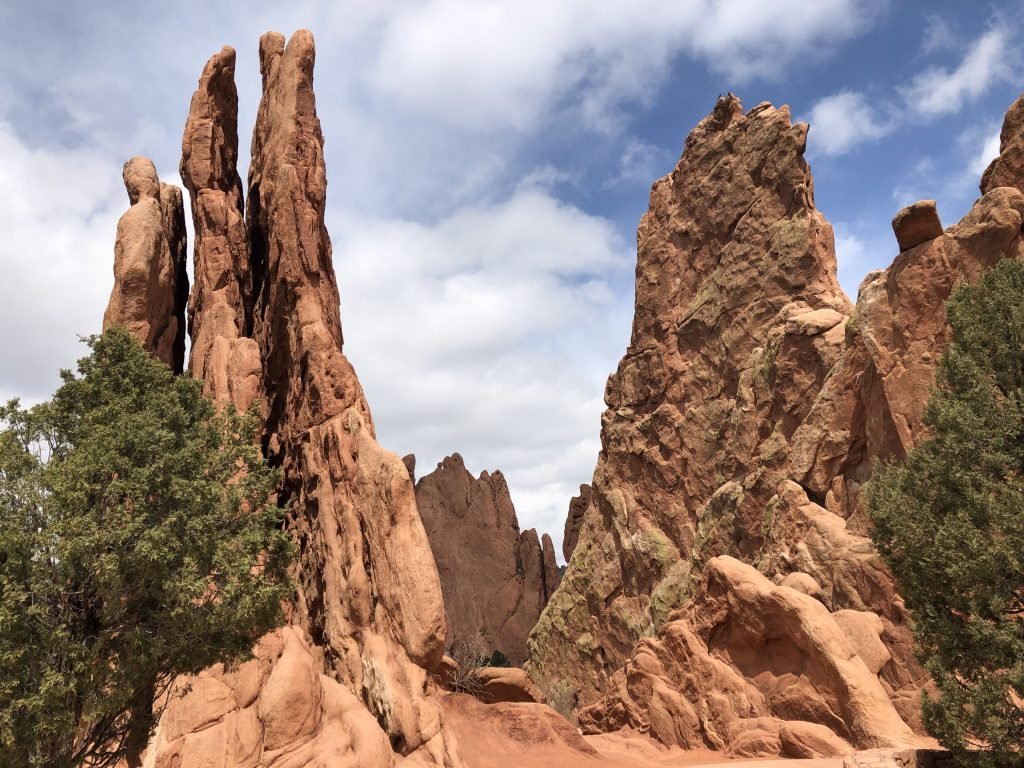
Another scenic hot spot in Colorado Springs is The Broadmoor Seven Falls. This geological wonder of seven distinct falls cascading down between steep canyon walls is on National Geographic’s list of International Waterfalls. After parking remotely at a lot several miles away, visitors are shuttled to the entrance site. From there, you can walk to the falls or hop on another shuttle. Once you arrive at the base of the falls, there are several options. If you want some exercise, climb the 224 steps to the top, pausing to catch your breath to look at each of the falls and the views you get from each juncture. You’ll be well-rewarded for your effort. Then you can turn around and go back down or continue your journey by hiking the trails to Midnight Falls and/or Inspiration Point.
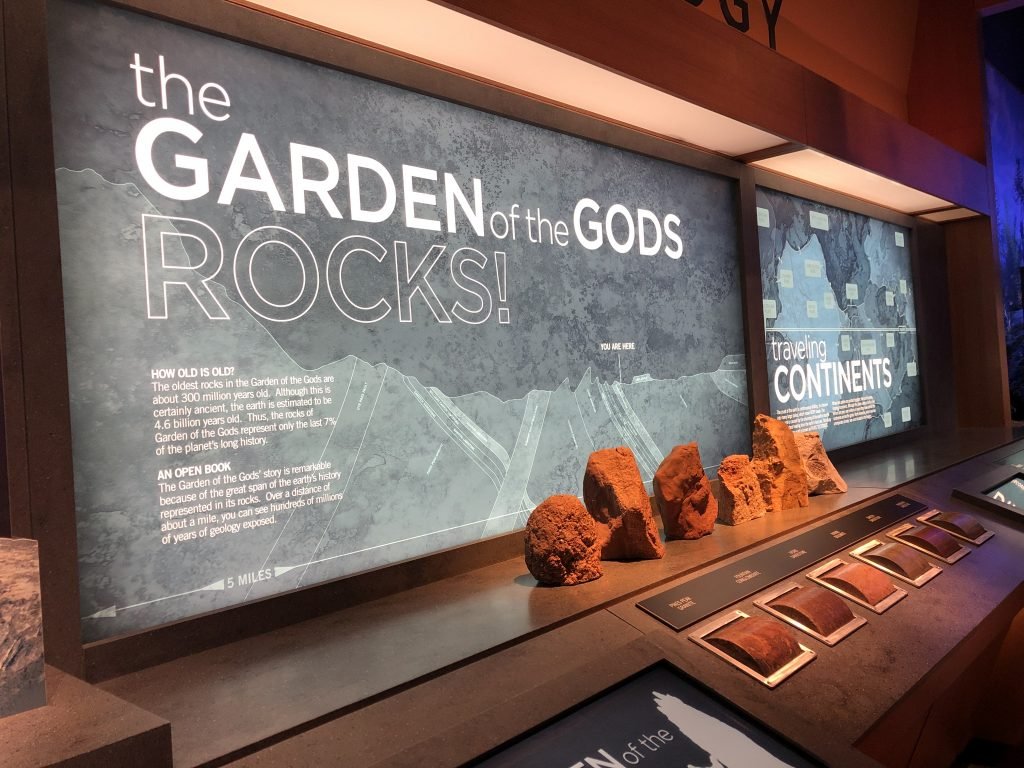
Double your exercise fun and climb the 185 steps to the Eagle’s Nest observation platform for another perspective of the falls and surrounding scenery. If you’re not a fan of an outdoor Stairmaster, ride the in-mountain elevator to the platform. The elevator travels up a shaft that was mined out of the solid rock of the mountain. And the tunnel leading into the mountain to the elevator is lined with interesting exhibits that are worth taking the time to see. I ended up doing the stairs and also riding the elevator, as there’s something about taking an elevator for several hundred feet up through a mountain that sounded too unique to pass up.
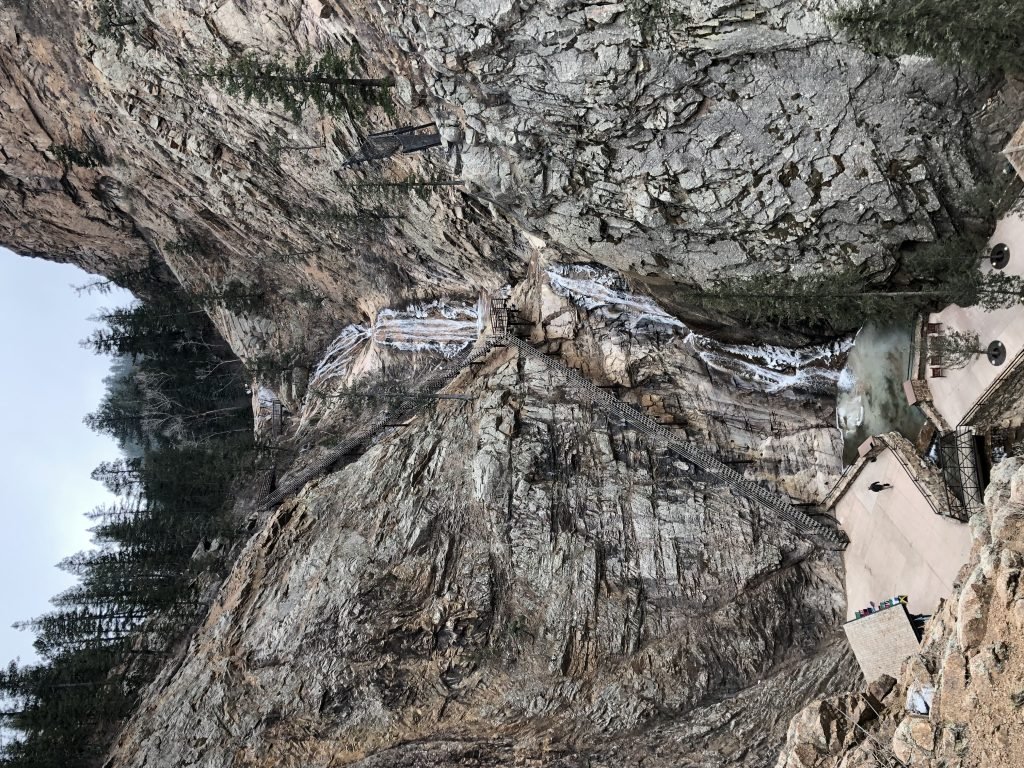
Pikes Peak, known as “America’s Mountain,” is a must for most first-time visitors to the area. At 14,115 feet high, this iconic pinnacle is the most famous of Colorado’s fourteeners. It was named in honor of American explorer Zebulon Pike, who was ironically unable to reach the summit. Those who are up to the challenge of doing the 13.5 mile climb to the top, need to be prepared for a gain of about 7,400 feet in elevation. It’s basically a half-marathon in hiking form, with low oxygen.
If you’d prefer to ascend the peak in a less taxing way, you can always drive the nineteen-mile-long Pikes Peak Highway to the summit. It still takes a while to get there, as the road winds and has plenty of switchbacks, so you need to proceed slowly. You’ll also want to take in the picturesque scenery at designated stopping areas, and if you want, you can stretch your legs with short hikes.
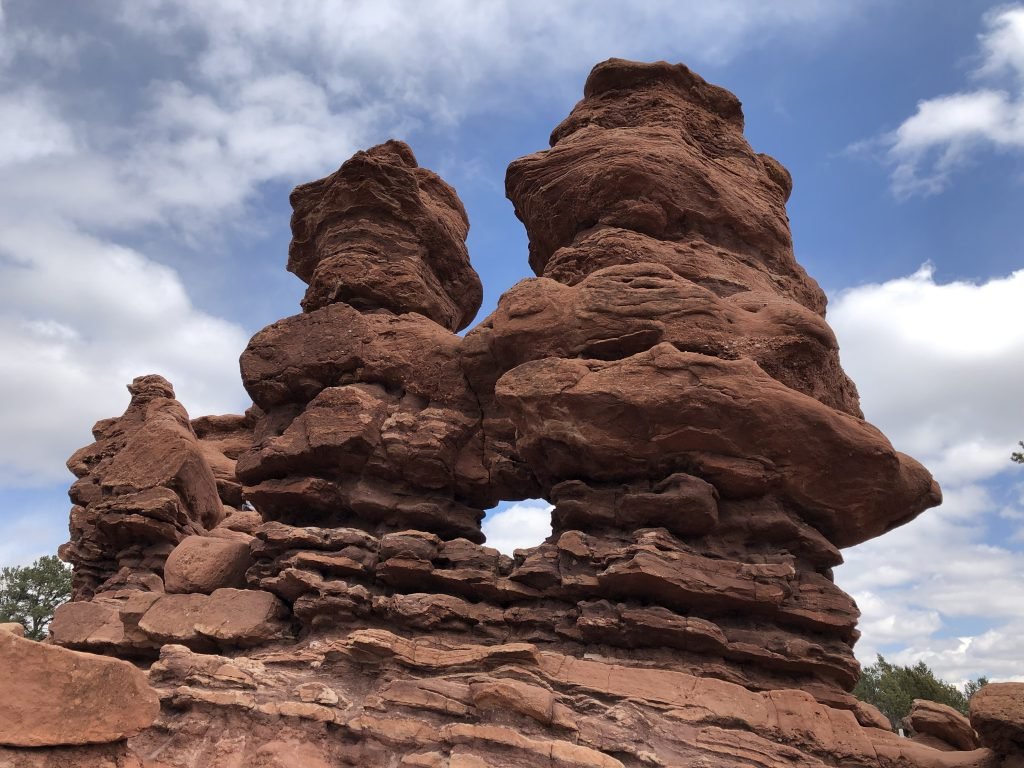
The Pikes Peak Cog Railway is another alternative, but it is currently undergoing a major overhaul and won’t resume operations until 2021. I rode the railway many years ago when I first visited the area, and I vividly recall the creaks and groans of the car as it climbed the steep tracks to the top. I remember wondering if we’d make it in one piece!
When the weather cooperates, the panorama from the summit is one for the memory books. You’ll have unparalleled views of the southern Front Range and the greater Colorado Springs area. At the observation deck, you’ll find the America the Beautiful monument and various commemorative plaques. The historic Summit House still stands here as well.

Colorado Springs is known as Olympic City USA, and another of its prime attractions is the U.S. Olympic Training Center. Set on 35 acres, the center is home to Olympic and Paralympic athletes competing in various disciplines, including wrestling, boxing, swimming, modern pentathlon, shooting, gymnastics, judo and figure skating. Roughly 140,000 people visit the facility each year. Tours are offered to the public and they are typically given by an athlete, allowing visitors to get greater insight into the life of an Olympic hopeful.

The day I visited, our group’s guide was Veronica Day, an athlete in the winter sliding sport of women’s skeleton. Day is currently ranked number four in the country and has set her sights on competing for Team USA at the 2022 Winter Olympics in Beijing. A former track collegiate athlete, she has been training for many years, both in Colorado Springs and at Lake Placid. Day shared with us the intense commitment, dedication and singular focus necessary for athletes to compete at such a high level. It’s beyond overwhelming for mere mortals like myself!

The center is able to provide housing, dining, training and recreational facilities and other services for more than 500 athletes and coaches at one time. Athletes are selected to train at the complex by their respective National Governing Body. It’s hard not to be impressed by this hallowed place, with its specialized gyms, swimming pools, rehab and sports medicine facilities, and state-of-the-art equipment–like the anti-gravity treadmills for injured athletes and an adjustable high altitude workout chamber to replicate environments that the athletes will be competing in around the world.
During your tour, there’s a good chance you’ll see some athletes in the midst of their training regimens. We were fortunate to get to observe the women’s wrestling team doing drills on the mats. I was exhausted after watching them for just a few minutes, but they gave me inspiration to up the ante on my own exercise program and find my inner champion. I know it’s in there somewhere!
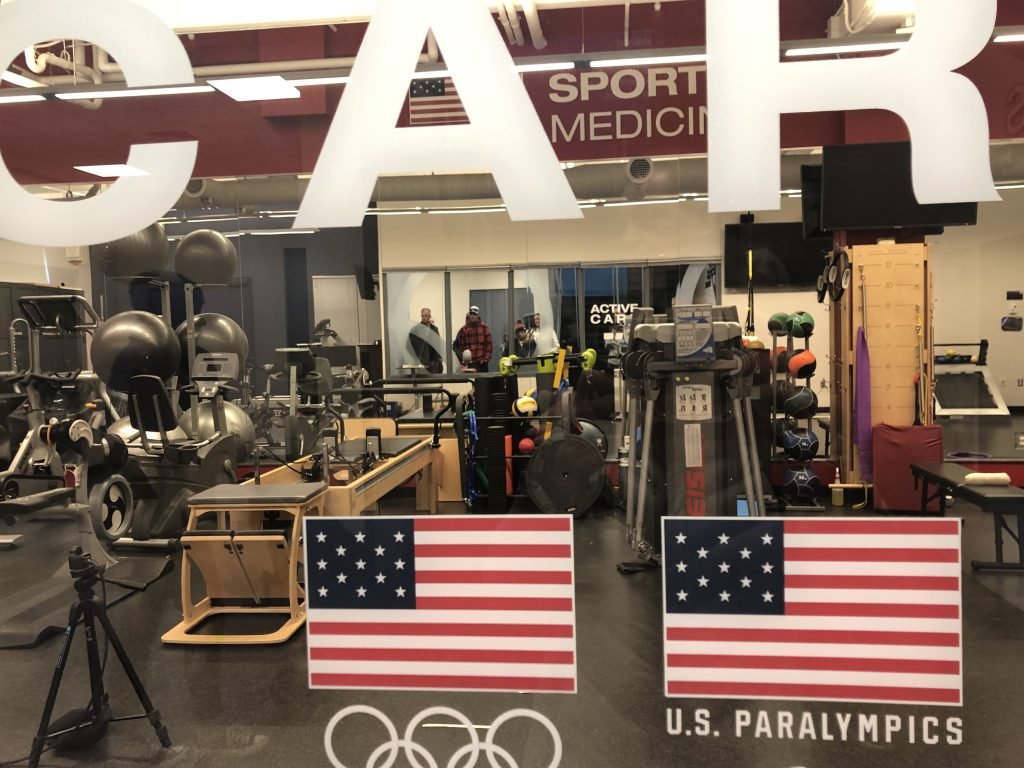
Colorado Springs is also home to a number of museums specializing in everything from natural history and WWII aviation to pioneer and Wild West heritage, mining, the arts and more. Scheduled to open with much fanfare next year is the United States Olympic Museum and Hall of Fame. The 60,000-square-foot building will document the history of the U.S. Olympic and Paralympic movements, while celebrating the achievements and legacies of its athletes. It will contain an interactive exhibit space, state-of-the-art theater, gift shop, café and broadcast studio.
With all this activity, you’ll need sustenance. Thankfully, Colorado Springs has a thriving food scene with options galore, from casual sidewalk cafes to sophisticated and elegant establishments. Dine on farm-to-table, fresh and seasonal fare, chow down on some Rocky Mountain barbecue, munch on a wood-fired pizza, or go international and enjoy dishes from Italy, the Far East, Germany, Greece, South of the border and even Nepal.
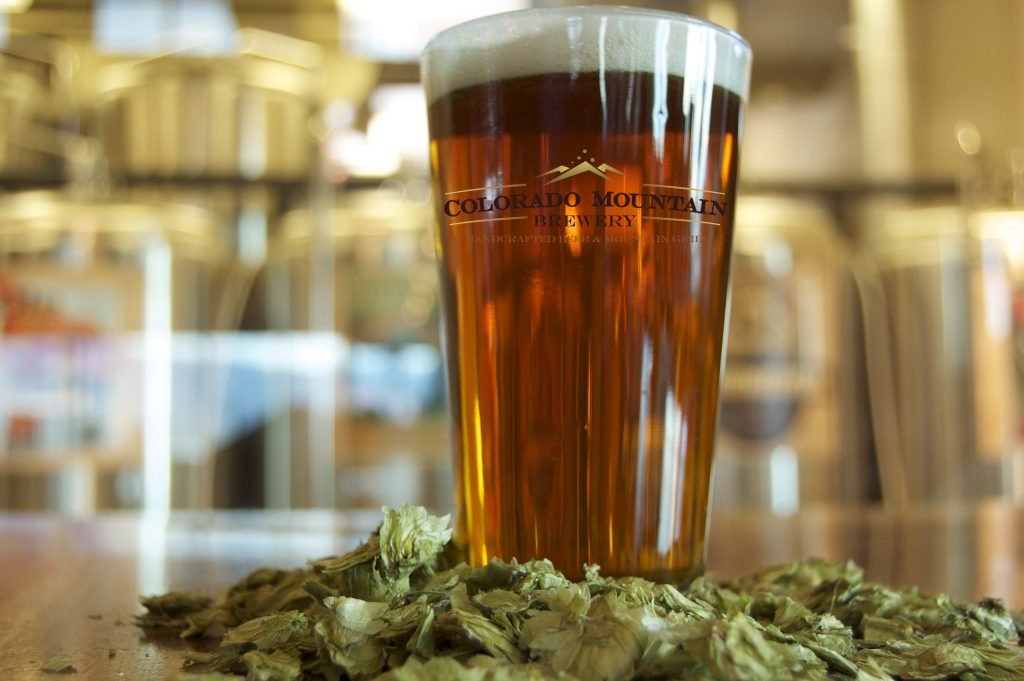
Colorado Mountain Brewery – Roundhouse courtesy of Visit Colorado Springs
Start your day with breakfast, for example, at local favorite Urban Egg; grab a hearty, open-faced, Scandinavian-style sandwich at Smørbrød for lunch and in the evening, head to Streetcar 520 for some fresh trout, crispy basil-ricotta fritters and avocado chocolate mousse.
When it comes to beer, Colorado Springs takes pride in its craft offerings. The town boasts more than twenty breweries, taprooms and tasting rooms, with more on the way. There are also numerous wineries, wine bars, distilleries and even a few cideries, making it easy to sip and savor the tastes of this glorious region.
If you go:
gardenofthegodsclub.com
VisitCOS.com
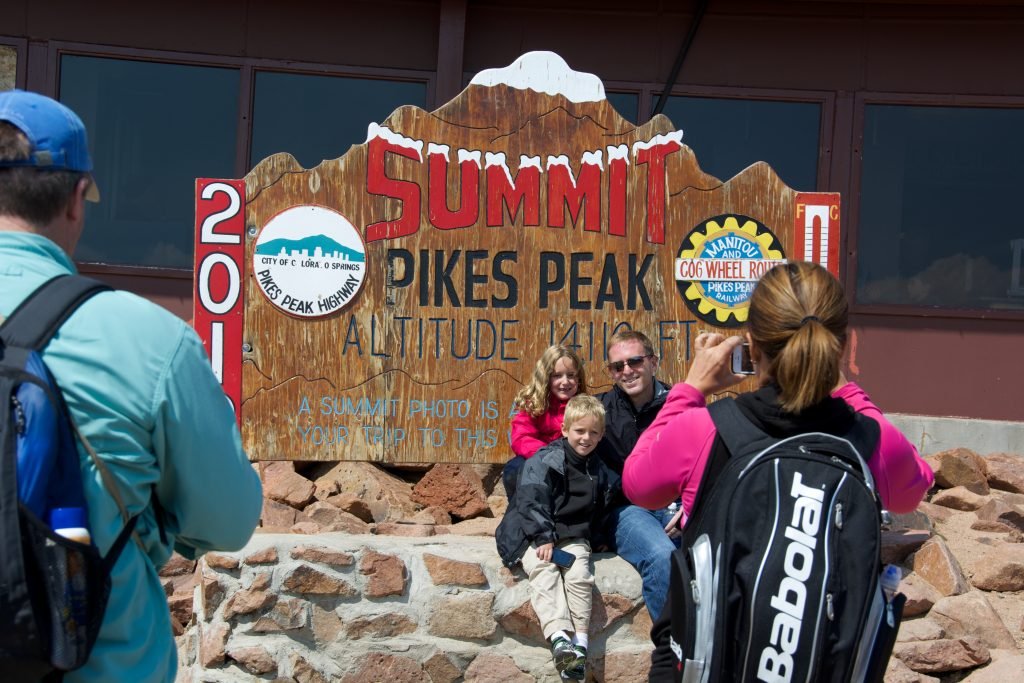
Pikes Peak Summit courtesy of Visit Colorado Springs
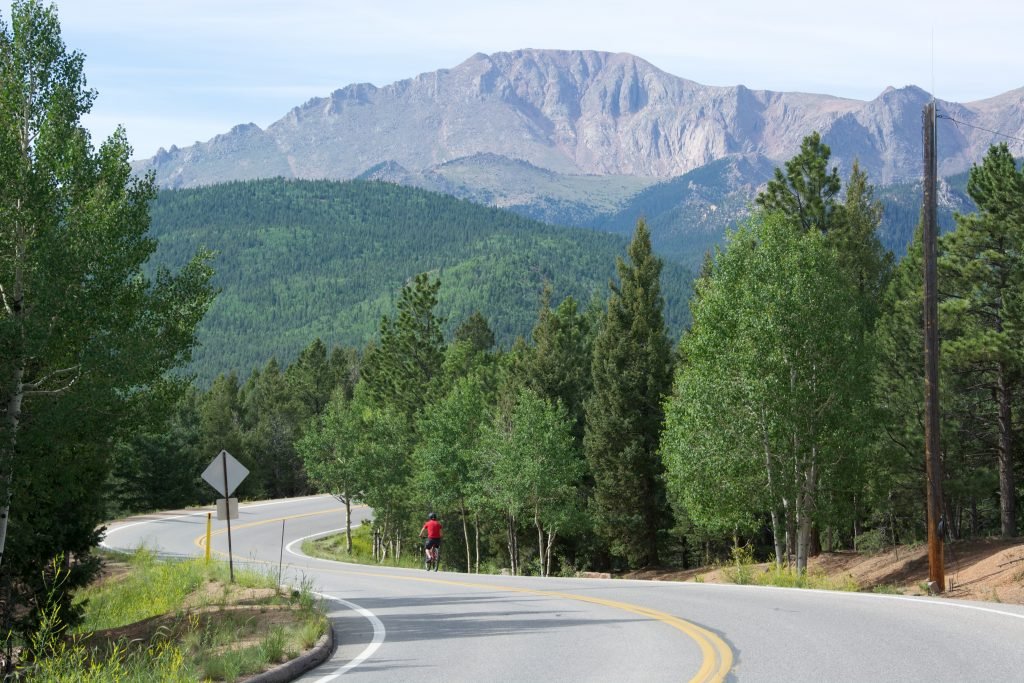
Pikes Peak Highway courtesy of Visit Colorado Springs













![Sartori’s Master Cheesemaker Pam Hodgson [INTERVIEW]](https://luxebeatmag.com/wp-content/uploads/2018/09/Sartori-Cheese-MontAmore-2018-Copyright-Sherrie-Wilkolaski-4-440x264.jpg)




















